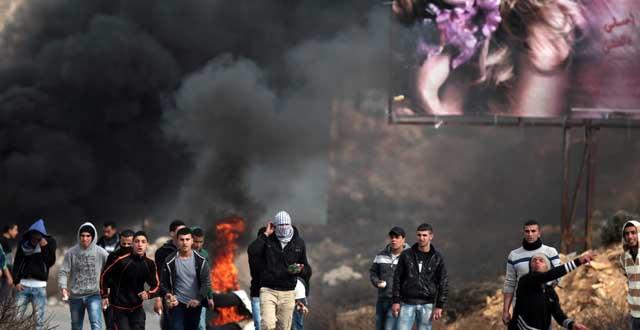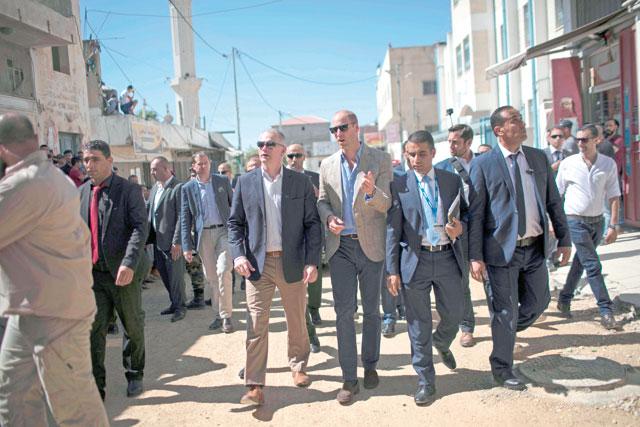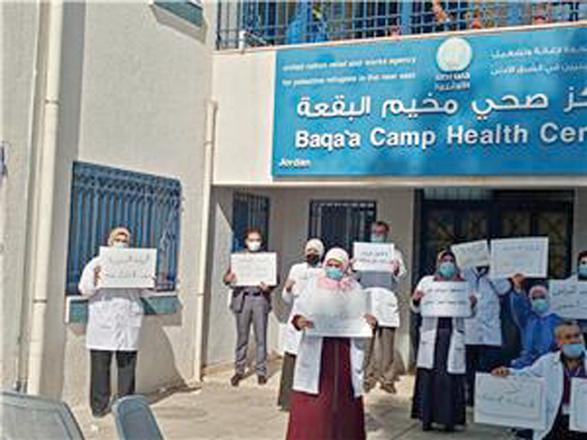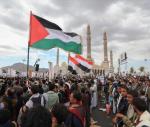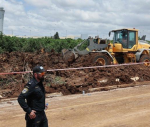JALAZOUN, West Bank –– Residents of Palestinian refugee camps burnt tyres and closed roads in the Israeli-occupied West Bank on Thursday in protests stemming from a month-long strike by the UN agency that operates the camps.
The demonstrations came as the Palestinian economy falters and while aid agencies struggle to cope with deepening refugee crises related to the civil war in neighbouring Syria.
Scores of youths blocked a main road outside the Jalazoun refugee camp north of the de facto Palestinian capital of Ramallah, as well as roads linking other camps inside the city, to vent their anger over a lack of services normally provided by the United Nations Relief and Works Agency (UNRWA).
“The trash here is piled up so high we can’t even sleep at night for the smell,” said camp resident Mahdi Ahmed, 20.
“The UNWRA strike has gone on for 35 days, and there are no clinics, no jobs, no education. What hope is there for this generation? We’re being strangled little by little.”
A Palestinian labour union went on strike last month over salaries. UNRWA employs more than 5,000 Palestinians in its 19 camps for some 730,000 West Bank refugees.
The union also objected to a one-off $140 bonus their counterparts in Jordan received.
Diplomatic sources told Reuters the bonus, suggested in part by the United States, aimed at shoring up stability in Jordan, which has taken in over 600,000 refugees from Syria and is already home to more than 2 million Palestinian refugees.
Priorities
Many refugees fear UNRWA is slowly disengaging from its aid activities and believe the international community owes them support since it recognised Israel amid the war that led to its founding in 1948 — during which they fled or were driven from their homes to Gaza, the West Bank and surrounding countries.
The UN agency has said it is trying to end the strike but does not have funds to meet the wage demands. It also says its employees get paid at least 20 per cent and in some cases 80 per cent more than public-sector employees in equivalent fields.
“The general Palestinian public seems increasingly appalled,” UNRWA spokesman Chris Gunness told Reuters.
“The strike has deprived some 51,000 children of an education, shut down 42 health facilities, denied 5,800 of the most vulnerable refugees urgently needed relief services and withheld financial support from 5,100 refugee families.”
Unemployment and poverty in the Palestinian territories both hover around 25 per cent. The aid-dependent Palestinian Authority is hard pressed to pay even its own workers.
UNRWA union spokesman Shaker Al Rishq said few agency employees were paid above Palestinian government salaries and that UNRWA staff in neighbouring countries were paid far more.
“The people are furious with the agency, not with our strike. We will engage in steps to escalate our action. Twenty-seven employees have been on hunger strike for 17 days, and some of them are in the hospital,” he said.
The issue of refugees is a major stumbling block for US-backed peace negotiations between Israel and the Palestinians which have struggled to make progress after a three-year pause.
Israel’s Foreign Minister Avigdor Lieberman said last week he would not approve a final peace resolution that allowed “even one single [refugee]” to return to “Israeli soil”.
Palestinian President Mahmoud Abbas has said the issue must be solved according to a 2002 peace initiative backed by Arab countries, which envisions a partial return and compensation.


